Learning how to be organized is what separates us from monkeys. Okay, not literally. Some monkeys are extremely good at tidying up their trees. But on a less serious note, if you want to be successful in life, you need to learn how to be organized. All of the greats are doing it.
First, what is the meaning of organized? Let’s have a look at the organized definition:
- Of a person, characterized by efficient organization.
- Organize – To constitute in parts, each having a special function, act, office, or relation; to systematize.
Pretty simple, right? It’s also important to remember that organization is something you learn—you’re not born with it. Good thing for some is … old dogs can learn new tricks!
This article is the most in-depth guide out there on becoming effectively organized. So if you’re wondering how to get organized and positively transform your life, stay tuned.
Let’s get to it.
Here are 28 tips on how to be organized:
1. Organize tasks by importance and responsibility
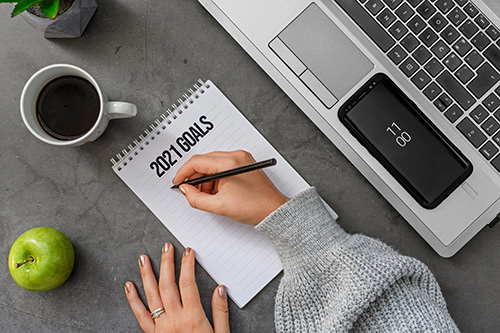
What’s more important than setting the right goals? Actually pursuing and completing them.
In order to make any substantial progress with your aspirations, you need to focus on getting things done that contribute to those goals.
Consider that every task you complete which has a direct impact on your goals is a task worth completing first. That’s how I stay organized. And it’s how I set my new years resolutions.
My hierarchy of organization always has goals on top. And things on top get done first.
Getting caught up with things which are not your goals is okay. As long as they don’t keep you from being one step further ahead—today, than you were yesterday.
2. Create effective to-do lists
There are so many benefits of utilizing a to-do list.
I actually talked about something called the Zeigarnik Effect in a recent article, and how crossing off completed items frees up brain power so that you can focus on more immediate tasks.
You can see how this would naturally help you get your life organized.
In fact, having an organized list is one of the most powerful ways to build organizational skills. That’s considering you follow the 1-3-5 rule:
“On any given day, assume that you can only accomplish one big thing, three medium things, and five small things.”
Most successful entrepreneurs use to-do lists, and there’s no coincidence as to why. Doing it allows you to think forward, not backward. It’s one of the best ways to become organized simply by using a list.
3. How to be organized 101: Manage your time
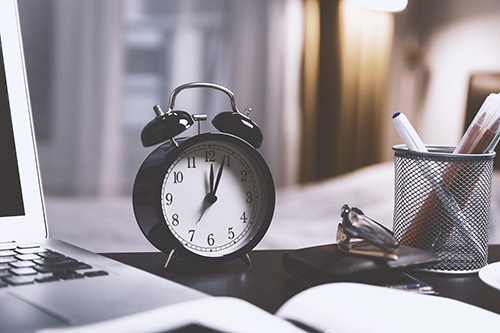
Numerous studies show that working in what are called Pomodoros (coined from the Pomodoro Technique) separated by short breaks, are proven to increase productivity and work performance.
The idea is that you perform a task (called a Pomodoro) for 25 minutes, then take a 5 minute break. You do this until four Pomodoros are complete, then your last break can be much longer (15-30 minutes). Your next cycle of four Pomodoros then begins. Rinse and repeat.
Doing this helps to increase your focus and prevent brain fatigue, by allowing you to perform your best work at full capacity before your attention span decreases (1).
I’ve been doing this for a few months, and let me tell you, it really makes a difference.
It’s helped me take more organized notes at work, and all in all, it’s helped me get my life organized. Try it out!
4. Use calendars and planners
There’s nothing worse than forgetting an appointment. And what better way to prevent this from happening than putting it in your calendar?
I find my cellphone’s built-in calendar to work best. It’s actually my go-to, considering that calendars are more effective than to-do lists. If I need an important event organized, it takes only 15 seconds to schedule it.
This is especially true since our phones are attached to our hips in this era, it only makes sense they be the primary calendar we use. Need something organized for school? Easy, type it into your phone.
Need to set birthday reminders for the year? Fill them into your calendar every January. And since you already have your phone on-hand, you can call or text them on the spot!
Don’t rely on your memory when we have such a simple tool that was designed to take this load off your hands.
5. Write Instructions On How To Do Things You Figured Out
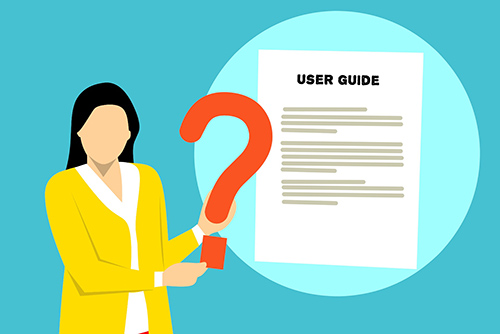
Don’t ever re-learn how to do something that you had to figure out how to do. I have an arsenal of documents on my computer that I’ve written, in case I ever forget how to do something.
I’m not referring to basic things, like how to tie your shoe, but rather things one might be prone to forget. For instance, how to access a printer’s settings by entering its IP address into the web browser.
Writing instructions isn’t just limited to technical things.
You can also write documents, for instance, on how to negotiate a salary. I originally wrote that article for myself! Then I decided to share it with everyone.
But when you’re not able to find instructions on how to do something, you should definitely write how you did it when you’re done. Try using this step-by-step pattern to ensure your instructions are efficient.
For creating the files on your computer, it’s easy. Here’s how to do it:
Create a folder on your computer and name it something like Instructions. Then create folders inside it with names that relate to the topics of the articles you’ll write.
So for anything you figure out that is network related, name the folder Network. Then within Network, you can write documents on things you figured out how to do in regard to your network.
Consider this strategy of organization your own personal call center. But this call center is based on running your life. So, the more organized data you have filed away, the more effective your system of instructions will be.
This is an excellent way to get your life organized and on track.
6. Be organized by counting your supplies
I don’t know about you, but I think the pen was one of the best inventions ever made. Sure, we use our computers basically 90% of the time. But when we need a pen, there better be one close by.
That’s like rule #1 of being an organized writer.
Don’t spend time searching for tools and being pulled away from your work, when you could be self organized and already have the tools on-hand.
Get in the habit of counting your supplies once per month, or even quarterly.
I do some crafting at home, like when I have to sew a pillow because my cat Taquito scratched it open. And so, I made an upcycled pen organizer to store all my craft supplies (compliments of The Crazy Craft Lady).
Here are a few common supplies you should always have on-hand:
- Pens, pencils, and highlighters
- Printer paper, notebooks, and staples
- Double-A and triple-A batteries
- Mailing envelopes and stamps
The less time you spend being scattered and scavenging for supplies, the better. It’s not that hard learning how to be organized, you just have to give it a little umph.
7. Strike while the iron is hot
There are three kinds of people in this world:
- People who love doing laundry.
- Those who don’t mind doing laundry.
- And those who hate doing laundry.
I used to be number three. But I eventually migrated to number two. If you’re number one, good for you, you’re likely already a pretty organized person. However, if you’re not number one or two, you should force yourself to do your laundry in one sitting.
Leaving clothes lying around, unfolded and not stored properly is basically you pigeonholing the inevitable, and telling yourself that it’s okay to not be organized.
It’s procrastination at its finest, and it’s like a domino effect. You’ve got to stop the reaction in its tracks before it’s too late.
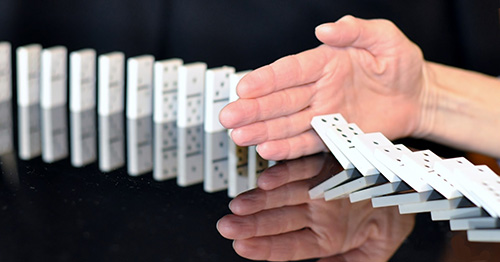
First, you don’t put away your clothes. Next, it’s not organizing your kitchen cabinets. Then it’s tossing your shoes in the middle of the room. Before you know it, your reality is the shier antonym of organized—chaos.
And I’m not talking about organized chaos—like the Universe. I’m speaking of a chaotic world, where no one has means to improve their quality of life, or even find the enjoyment in laughter.
My point is, it’s best to just get things done while the iron is hot.
You could even consider negotiating with your partner to do their household tasks in place of doing your laundry.
It’s better to ‘pawn’ it off and swap duties, than allowing yourself to be disorganized. I also recommend taking a 7-day-view, where every Sunday, you and your spouse assign household tasks for the week.
Here are a few other things I suggest doing while the iron is hot:
- Give away old clothes and shoes that you haven’t worn in a while. Consider the one-year rule—if you haven’t worn it for a year, toss it.
- Wash dishes when you are done with them.
- Immediately pay your bills when you receive them. Don’t delay the necessary. Get the pain over with now, and allow yourself to recover until your next bill.
Try to get into the habit of getting stuff done while the iron is hot. Organized living isn’t too hard. You just need to stay on top of things.
8. Consider organization apps
Being well organized can be tough. Fortunately, there are many apps out there designed to help with this.
There are apps built around staying organized for business, some for personal use, and even apps like Proofhub that integrate with major software like QuickBooks, DropBox, Google Drive, Outlook, etc.
I highly recommend using some type of software that will help you stay organized in your day to day life. The good thing is that there are lots out there to choose from. You just need to figure out which part of your life could be improved upon.
9. Become organized by limiting multi-tasking
Believe it or not, as much as multi-tasking may seem to make you more productive, research shows it does the opposite.
In fact, multi-tasking is actually harmful for your mental health. It lessens your ability to focus fully on your work, and it can ignite symptoms of anxiety.
One of the ways to be organized and to help combat unnecessary multi-tasking is to use the Pomodoro Technique that I described earlier. Breaking up your tasks into short intervals of time is a great way to ensure you are giving every task your best effort.
It’s not bad to have multiple things going on at once, but it is unhealthy to switch to other tasks when you haven’t completed what you’re already working on.
Limiting multi-tasking is an excellent way to have a self organized network, both at home and work, where you can delegate your workflow to increase your productivity.
10. Utilize a filing cabinet
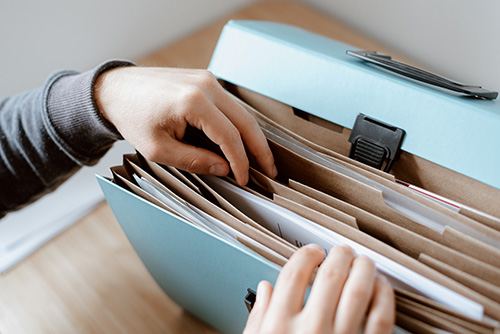
I think we can all agree that less paper is better. But what about the documents that you don’t really have a choice of storing physically? Well, you should probably be using a filing cabinet.
I have one at home, and it’s divided into organized file folders that are labeled. Here are the sections I recommend you sort them by:
- Taxes (organized by year)
- Medical
- Business
- Government documents (photo ID copies, birth certificate, social security card, etc.)
- Long-term goals and plans you’ve written down
- Bank documents
- Rent, mortgage forms, car loan documents
- Miscellaneous (mailing envelopes, stamps, vehicle titles, etc.)
Sort things by what makes sense for you. You’re essentially creating an organized library at home.
If you have multiple businesses, consider creating a folder for each one. If you are married, use a filing cabinet that has a top and bottom drawer—one for you, and one for your spouse.
Long as you have things neatly organized in the filing cabinet, and your folders are labeled appropriately, this should help out tremendously.
Remember: the organized home, is a happy home.
11. Organize your email inbox
The most successful people in the world have at least one thing in common: they have an ultra efficient process for handling emails.
When you receive tens, hundreds of emails per day, having an organized email inbox is mandatory.
I’m one of those people that aims for Inbox Zero—an email management technique aimed to keep your inbox empty, or almost empty. I thank Merlin Mann for this mindset, especially because I have 15 email accounts that I manage for my businesses.
Organize your email by filters and rules.
In regard to functionality, most major mailing platforms have the same standardizations.
You could set up rules so that certain emails from specific domains are sent right to your trash, or to other folders you set. For instance, I do a lot of Amazon business, and so I’ve set up rules in Outlook to send any email from the @amazon.com domain to my Amazon folder.
Here’s how to set up a forwarding rule in Office 2016 Outlook.
For the purposes of this demonstration, I’ll be setting up all incoming Amazon emails to get forwarded to my trashcan.
- Click File in the top left of Outlook.
- Click Manage Rules & Alerts.

- Next, click New Rule.
- Click Apply rule on messages I receive.

- Click Next.
- Click (#1 in red) with specific words in the sender’s address.
- Then click (#2 in red) specific words.

Next, type in the name of the domain that you want your incoming emails filtered for. In my case, it’s Amazon. That way, all emails where the senders’ address contains ‘Amazon’ will get the rule applied to.
P.s. This rule would filter the following examples:
- hello@amazon.com
- Amazon@hello.com
- HiAmazonBye@thankyou.com
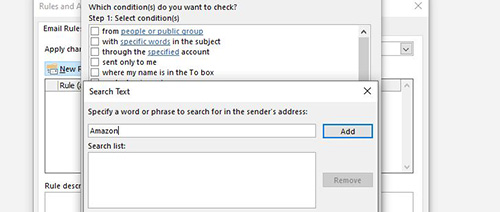
To make sure you filter only xxx@amazon.com, and not Amazon@xxx.com, you could simply change the containing text to ‘@amazon.com‘.
Once you’ve added the domain you want the rule set up for, you need to specify what will happen to the email. In my case, I want Amazon emails sent to my trash.
- Click move it to the specific folder
- Click specified folder
- Choose the folder you want the emails sent to. As you can see below, I chose Trash.

And that’s it! Your forwarding rule set up is complete.
Setting up rules will be different on every email platform, but you can at least see the terminologies in the process, and replicate it on your own.
Automation rules aren’t necessary, but if you want to be super organized and have a clean inbox, I recommend it. It keeps you, simply organized.
Another piece of advice is to never put old emails aside to deal with later. Whenever you receive an email you should always decide on the spot what you will do with it. If you won’t need it later, delete it.
Never read an email twice.
If an email is important and you must keep it, store it in a folder it belongs in. And if you’re not sure if the email is important, it’s probably not. DELETE IT.
Get in the habit of emptying your Trash once a month.
This way, if you made a mistake when deleting something, you have one month to restore it. Being virtually organized is a crucial component of living a well rounded, healthy lifestyle.
12. Don’t reinvent the wheel
Don’t overthink things, in general. Life is like math—if something seems difficult, simplify it. Create a process to combine like values, dot your I’s, cross your T’s, and never add unnecessary steps.
Fortunately, we’re not the ones who had to invent calculus. All of the rules of success already exist. You simply need to follow what has worked for others and replicate it.
That’s what is special about our world today. All of the answers already exist, somewhere out there. All thanks to the internet, which is basically the central nervous system of our century.
All you must do is the research.
Life is simply a very well organized numbers game. Pick your number, follow the clues, match it up with the one waiting for you out there in the universe, and you’re a winner. You’ve solved this puzzle called life.
My point is, if you want to learn how to stay organized and get stuff done in an efficient way, just do your research. All the answers are already out there.
Think smart, not hard.
13. Follow through with plans
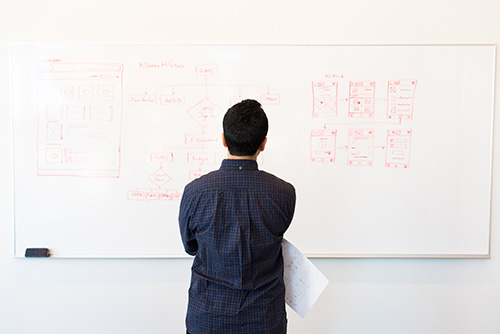
If you want to learn how to be organized, you should always keep your word.
Never say you’re going to do something and not do it. This holds truth even for the simplest things. Because, what happens when you don’t follow through with your word is that it puts a negative hit of karma on you.
Not in any religious sense, but rather it affects how others perceive you and your values. If your are having trouble getting along with people, maybe it’s because you bail out on plans often?
Being organized is more than putting things where they belong.
It’s much deeper than that. Organization is a reflection of your ability to time block in regard to value. When you tell someone you will do something, you give them insight into your values. Then when you take back on that promise, it shows your values were not true.
And when you don’t display your truest values, it’s a sign that you are not capable of organizing your feelings.
This can make your intentions seem skewed, which can affect your mental health and prevent you from making healthy, organized decisions.
14. Recognize when change is necessary
You should always aim to be the master of the things you are doing in your life.
For instance, you’re the expert at making your own bed. You know exactly how you like your pillows fluffed, and no one could do it better than you.
You are the most competent at doing the things you do, specifically at doing them YOUR way.
This concept was summarized into a neat little quote by Warren Buffet, and it goes like this:
“Know your circle of competence, and stick within it. The size of that circle is not very important; knowing its boundaries, however, is vital.”
With this being said, you should always be the first to know when things in your circle aren’t working the way they should. Sometimes processes evolve. This is normal.
You should never continue with outdated processes that no longer work.
Recognize when it’s time to make changes. This is the only way you can stay organized for action to not sweep you into the dusty trenches of yesterday.
15. Maintain your phone

Our phones are becoming one of the most powerful tools out there for business and personal organization. Still, there’s a time and place for when you should be using it.
I check my text messages and answer calls when I’m working, but you won’t find me surfing Facebook or watching YouTube videos. Those kinds of things should be done in your spare time, not at work.
In order to succeed in life and become independent from your work, you need to first, make work your priority. Save the fun stuff for later. This involves focusing less on your phone, and more on your work.
Below are a few examples of organized phone usage that will help to keep your phone off your mind.
Phone Tip #1: Always minimize your distractions at work.
Don’t use the time at your job to work on your personal or business goals. That is, of course, unless your job is your business. If it’s not, then it’s better to designate time for these tasks during your personal hours.
If you don’t have enough time in the day, consider waking up earlier. In fact, most successful people—like Tim Cook of Apple, swear by waking up super early.
Phone Tip #2: Purge old text messages
My phone is one of the most organized spaces in my life.
I started frequently purging my phone about four years ago. I’ve found that deleting text messages older than 24 hours prevents me from having to browse my inbox to see whether or not I responded.
There’s really no use in keeping old conversations.
Once you pull what’s important from them, whether that be dates to meet up or what have you, the messages no longer serve a purpose. They are just taking up room.
Phone tip #3: Adopt The 90-90 rule for your phone
Similar to Inbox Zero, I keep my phone’s inbox 90% empty, 90% of the time.
This is because I delete conversations when I’m done with them. It’s a great way of being organized, and it allows you to judge what your social priorities should be at any given moment.
I do this with text messages, and the same with images/screenshots.
Unless you plan on saving the image so that you can transfer it to a backup later, you should delete it. Not only will it speed up your phone, but it prevents unnecessary distractions in your phone that aren’t serving a purpose.
16. Use Color coding
Not to get too deep, but there’s a reason colors exist. And it’s not just to make life look pretty. Colors occur because they have functions. And one of those functions is to create identification.
Living things are organized because we can identify our surroundings by color, which we have been doing since the beginning of time. Some animals know which foods to eat based on color, while others display color to ward off predators.
But what’s this have to do with using color to be more organized?
It has everything to do with it.
Let’s use work documents as an example. Some people organize their files by shape. Others, by size. Some by texture. It depends on the sense which you are using to identify the object.
You can’t feel color, but you can see it.
And so, if you tend to organize things visually, color coding them for classification might be your best bet. I use color coding for everything. This is especially true in regard to my second favorite office supply, sitting right next to my pens—sticky notes!
17. Use sticky notes
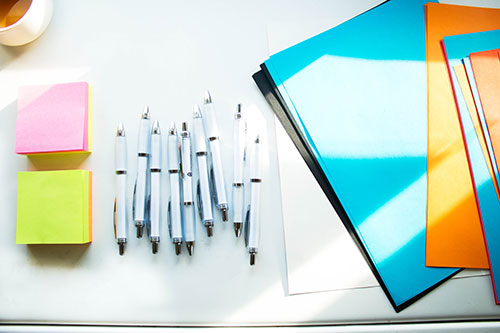
Sticky notes are one of the best inventions by man. They are such a useful tool, that I couldn’t imagine life without them. Okay, not literally. But I use them every day.
Sticky notes also helped me stay super organized in college. Thank you Dr. Spencer Silver for your awesome invention! Your legacy lives on.
Here are some key benefits of the classic sticky note:
- They are super cheap
- Have different colors (organized by color, of course!)
- Easily disposable
- You can buy lots at a time
- They stick to things, becoming the perfect bookmark
Never again should you set loose, unfinished papers on your desk without labeling them with a sticky note. It’s a quick and easy process, and doing it prevents you from having to remember what step of the paperwork you were in.
All in all, sticky notes are a great way of using short, concise notes to keep track of your physical workspace belongings.
18. Don’t allow clutter to happen
If you’re wondering how to be more organized, you’ve got to keep this key point in mind.
When you’re done with something, give it away or toss it.
Setting things aside just makes you have to do the work twice.
There’s no such thing as organized clutter.
Sure, pack rats have a lot of stuff, but they’re super disorganized. And I wouldn’t trust their cheese.
Just like checking unread emails in your inbox, you should get in the habit of deciding—on the spot, what you will do with any particular item.
Either keep it and store it where it belongs, throw it away, or put it in a designated spot to be donated.
Allowing clutter to happen is one of the worst things you can do for your health. It can lead to chronic anxiety, slow down your rhythm of productivity, and it enables dust buildup which can cause respiratory issues.
One of the best things you can do to be more organized is to get into the habit of throwing things out that are useless, and putting things back where they belong.
19. Convert to digital (Save the planet)

We live in a world where digital is the new in, and paper is the out. There are many conservationists setting examples on how we shouldn’t use so much paper, and everyone is slowly getting on board.
It only makes sense to join this excellent cause of saving our planet, and to not use paper unless necessary.
Not to mention, the more paper you have, the more physical storage space you need. Why create unnecessary work for yourself by loading your desk with paper, if you can opt to digital.
There are many ways you can use less paper. Here are a few:
- Decline receipts when you buy items you’re likely not to return, like gas, food, candy, hair gel, etc.
- When making online payments, save the receipt as a PDF or email instead of printing it.
- Invent a system that our world can use so that paper becomes a thing of the past.
Adopting the digital mindset can really make it easier on you to become organized. You’d also be making an effort to help with our planet’s carbon emissions problem.
Per a CO2 study performed by Nature.com, the COVID-19 Pandemic curbed our planet’s CO2 emissions by about 6.4%. The U.S. led the way: our CO2 emissions dropped by 650 million tons in 2020 compared to 2019 (1/4 of the world’s CO2 emissions).
So, not only will converting to digital help you become more organized, but you’ll be helping the planet, too.
20. Unsubscribe from unnecessary emails
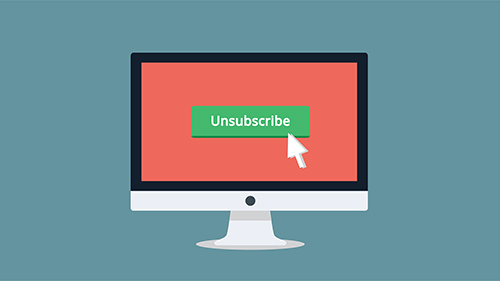
Have you ever subscribed to something—just because? Maybe at the time, you wanted to subscribe because you were interested in the content. But now, it’s not relevant to you anymore, and your inbox is filling up daily with emails you don’t care about.
Ignoring these emails is one of the worst things you can do. It will shatter any attempt at being organized.
When you receive these emails, you need to ask yourself if the RVC Rule applies to you.
- Is this content still relevant to me?
- Do I find value in this content?
- Will my life change if I unsubscribe?
If you answered NO to any of these questions, you should unsubscribe from the emails immediately.
When/If the RVC rule applies to you again one day, the content will find its way back into your life. But for the time being, it’s best to stop these unnecessary disturbances and unsubscribe from publishers you no longer need.
21. Diversify then combine your sources of information
What does it mean to diversify and combine sources of information? First, when I say sources of information, I’m referring to the sources in which you gain knowledge.
These could be sources via the news, the internet, newspapers, blogs, books, etc.
To diversify the sources is to make sure you aren’t allowing all of your knowledge to come from one single source. Imagine if that source was wrong? You’d be funneling—in a literal sense, piles of useless disinformation into your brain.
Think chickens. What happens when one is sick? Its eggs are spoiled.
Don’t put all your eggs in one basket.
Unless, of course, you are Elon Musk.
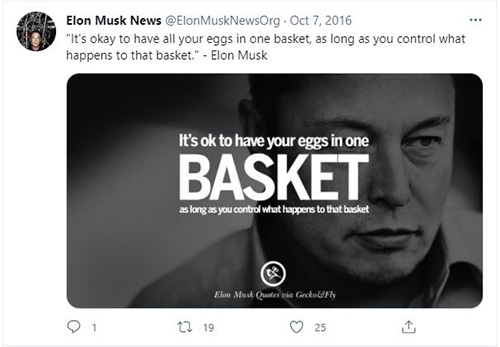
Considering that it’s nearly impossible to control the basket, it’s best to diversify.
Elon knows this. That’s why he wants so desperately to get to Mars. Plus, Mars is pretty cool.
Besides Elon, tons of successful people use this rule to diversify what they are doing. Ever hear of diversifying your wealth? Or how about the average millionaire has 7 streams of income?
Okay. You get the idea. It’s important to diversify your life. But what about combining those diversities?
Well, combining them is just a method of mentally recognizing your sources of diversity. Because if you don’t recognize that you are diversified, then you also wouldn’t recognize that you are NOT diversified.
You would be putting yourself at risk of being misinformed.
And what happens when you are misinformed? Your outlook in life is not as it should be. At which point you are very likely to be misunderstood by those around you.
It’s a good idea to start diversifying where you get your information from. This will help you be knowledgeable and well-rounded, which in turn, will help you become organized.
22. Use internet browser bookmarks to be organized
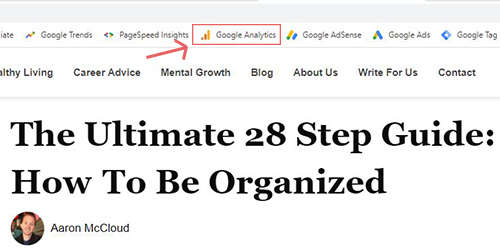
Internet bookmarks are key. I suggest having between 5-20 of your most viewed websites bookmarked.
Setting bookmarks is super easy. It depends on the browser you are using, but most major browsers are the same. I use Google Chrome a lot, so I’ll show you an example of how I do it.
Here is how to Set A Bookmark in Chrome.
Click the three vertical dots icon in the top right of your browser.
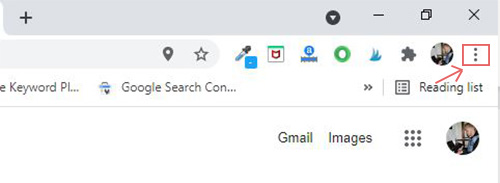
Next, click Bookmarks, then Bookmark this tab.
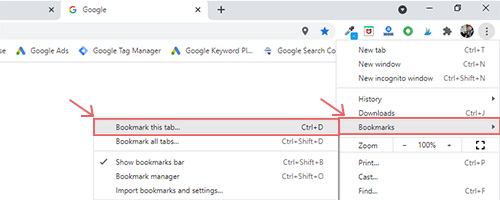
Name your bookmark and you’re done!
You can also simply press ‘Ctrl + D‘ on your keyboard, and the current page will be bookmarked.
*To delete the bookmark, simply right-click the bookmark icon in your browser and click Delete.
Doing this will prevent you from having to remember URLs. It also saves you precious time on having to type them into the browser. Bookmarks will change your life.
23. Don’t underestimate “NO”
Sometimes we have to just say no.
I really like what Tony Robbins says about ‘no’:
“The truth is, when you say ‘no,’ you’re not saying ‘I hate you,’ and you’re not insulting someone, you’re simply exercising your right to say ‘no.’ Because it is a right, not a privilege.”
I’ve been using the power of no for a long time.
I learned it at an early age from becoming type 1 diabetic. One thing it’s taught me is that being invited to activities when you’ve got unfinished work to do, is like being invited to eat at a buffet when your blood sugar is high.
You want to, but you can’t. You shouldn’t.
Always do what is right for you without the influence of others. This is one of the only ways you can get your tasks done on time, and to help yourself stay organized.
Part of being organized means that you know how to delegate your time, and that you can find the strength to do what is necessary to allow that to happen.
Don’t let unfinished work build up, even if it means you have to pass on event invitations. Be persistent and persevere. Your success will eventually follow.
24. Keep your desk clean
How does your work desk look right now?
Do you have your pens and pencils in a certain place? Or do you toss them wherever and whenever you’re done with them? Personally, I have my pens in an exact place. As well as my paperclips, highlighters, and everything else on my desk.
My desk has always been so clean that, at any time, I could snap pictures of it and list it in a seller’s catalog. Some might call it OCD, but I have a reason to my madness.
I believe that life is just a big spider web.
When one thing moves or exists a certain way, everything else is affected.
By allowing your desk to be clean and organized, you are subconsciously training your mind that everything else around you should be the same way. This is an extremely powerful technique to give stability to the foundation of why, and how you do things.
25. Don’t let dust settle
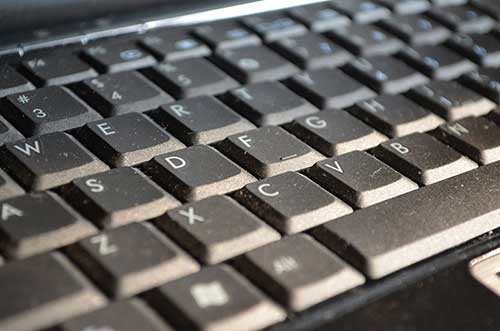
I’ve been guilty of this. It’s easy to set up a computer, stuff it into the tight spaces of a desk and forget about it. I once went three years without cleaning the top or inside of my computer. There was literally an inch of dust caked on it.
This was before I started a career in the technology industry, and learned the importance of cleaning the inside of a computer.
Not only this—and not to be nerdy, but I have a certain level of care for my computers now. After all, they store 50% of my business assets. The other 50% are backed up externally.
Letting dust settle puts you in the mindset that it’s okay to accelerate the expiration of things.
Not to mention, dust is horrible for your lungs. I had to start eating these foods to ease my asthma symptoms.
In the end, making sure you have a clean and organized environment will pay off in the long run.
26. Optimize your energy levels
One of the best times of day to get organized is morning time. You have the most energy, and it’s a great opportunity to be productive.
However, if you find that you are sluggish all day, and you are having trouble staying on top of things, you might need to work on increasing your energy levels.
Having no energy is not only tough on your productivity, but if you don’t have the strength to do your work the best you can, how will you find it in you to organize that work?
Consider making adjustments to improve your energy so that you can be more organized. Otherwise, you might end up like Garfield the cat—lazy, not wanting to do anything, and pretty much only good for company.
27. Health is always first
It’s so important that you do the best you can to make sure your health is optimal. After all, if you aren’t in good health, then how can you make sure your life is organized?
Hint: you can’t.
Health Tip #1: Designate a bag for your medical supplies.
I have a special bag that I carry everywhere with me. It contains all my major medical supplies in it. It’s barely noticeable—the size of a small purse, black, and I always know where I can find my medicine.
Health Tip #2: Get adequate sleep every day.
It’s imperative for your health that you get 8 hours of sleep daily.
Research shows that not getting enough sleep can damage your immune system, decrease productivity, increase risk of disease and sickness, and negatively affect your personality.
All of these things can prevent you from being organized. Try getting to bed at a decent time every night, and aim for 7+ hours of sleep.
Health Tip #3: Maintain your health records.
I mentioned earlier keeping your medical records in a filing cabinet. This is one way to organize your health.
Another recommendation is to find free software to store your health records. There are tons of free apps available. Do your research and find what fits your needs.
28. Backup your computer files
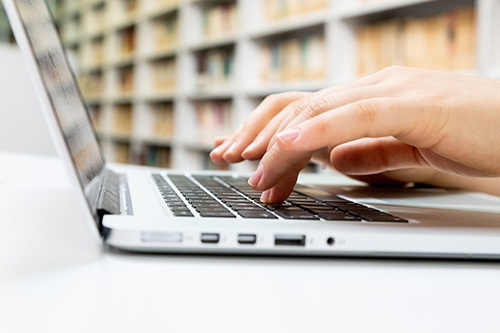
If there was one thing from this article that I hope you will leave with and act upon, it’s this. I’ll put it in big bold letters so you don’t forget.
Always back up your work, and computer files.
There have been several times in my life where I worked on a project for hours without saving, and guess what happened? You guessed it.
My computer crashed and I lost everything. Imagine?
I’ve learned to religiously save and back up my work.
There’s no reason not to. Whenever you are working on something, I suggest saving every 5 minutes, or after every major milestone.
I also recommend you back up ALL your most important files into multiple locations. Here is my process:
- Sync my files with Microsoft DropBox (Free version).
- Backup my files onto a cheap USB thumb drive (Any will do).
- Backup my files onto a reliable portable hard drive (like My Passport).
In addition to backing up your files and saving your work frequently, I also recommend having a master password list.
You should compile a spreadsheet with ALL your passwords and usernames.
Then, password-protect that document, and write the password down on a piece of paper and hide it somewhere (or use a password you will never forget). I also suggest preventing your document from being discoverable or shared on networks—private or public.
The other thing you can do is use a verified password manager like LastPass.
Having a password list, and frequently saving/backing up your files is one of the best methods of organization to secure your data.
Conclusion
I know this article was extremely long, but I wanted to pack in as much detailed information as possible to create this complete guide on organization.
That is the purpose of eHowdy: to provide you with the resources necessary to inspire you and improve your life. I hope you’ve realized by the end of this article that learning how to be organized is not too difficult. All it takes is a bit of know-how, some effort, and persistence.
So go ahead—pick two of the key points from this article. Tell me which one you’re already on top of, and which you need to work on. Let me know in the comments below!
Here’s a quick recap of 28 Tips on how to be organized.
- Organize tasks by importance and responsibility
- Create effective to-do lists
- Use time blocks
- Use calendars and planners
- Write instructions on how to do things you figured out
- Count your supplies
- Strike while the iron is hot
- Consider organization apps
- Limit multi-tasking
- Utilize a filing cabinet
- Organize your email inbox
- Don’t reinvent the wheel
- Follow through with plans
- Recognize when change is necessary
- Silence your phone while working
- Color code documents
- Use sticky notes
- Don’t allow clutter to happen
- Convert to digital
- Unsubscribe from unnecessary emails
- Diversity then combine your sources of information
- Use internet browser bookmarks
- Don’t underestimate “NO”
- Keep your desk clean
- Don’t let dust settle
- Optimize your energy levels
- Health is always first
- Backup your computer files
That’s all folks! Thanks for reading.
Feel free to comment below if you liked this article on 28 tips on how to be organized. I’d love to take questions or suggestions on other content you’d like to see on eHowdy!
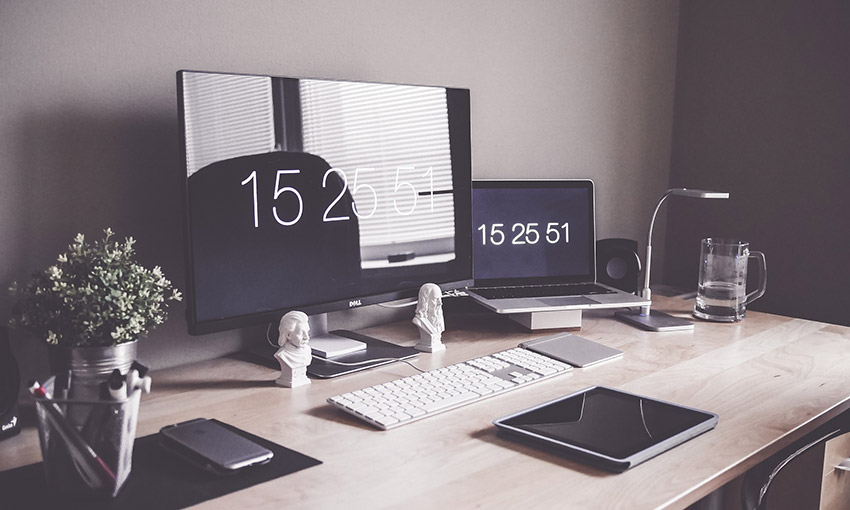
Excellent advice! So many good suggestions here.
Thank you 😊